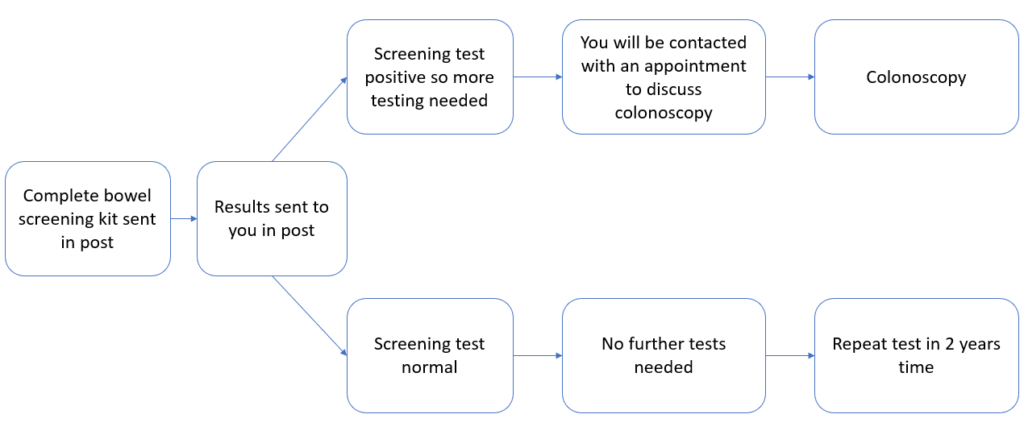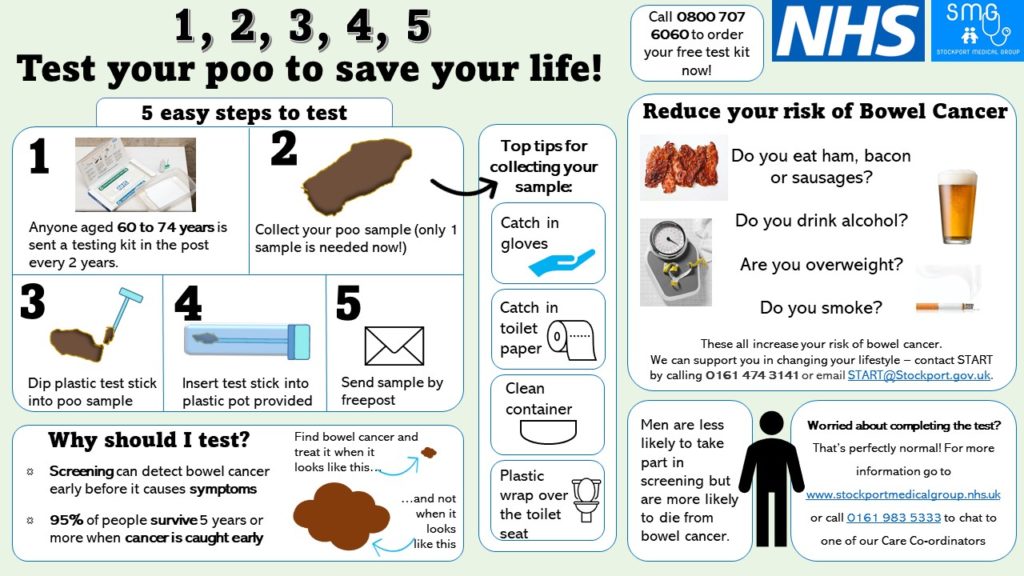NHS bowel cancer screening checks if you could have bowel cancer. It’s available to everyone aged 60 or over. For 6 weeks from the 20th February 2023 this programme will also includes 56 year olds and above.
You use a home test kit, called a faecal immunochemical test (FIT), to collect a small sample of poo and send it to a lab. This is checked for tiny amounts of blood. Blood can be a sign of polyps or bowel cancer. Polyps are growths in the bowel. They are not cancer, but may turn into cancer over time. If the test finds anything unusual, you might be asked to have further tests to confirm or rule out cancer.
If you are aged between 60 and 74 years old you will receive a test kit in the post every 2 years. You are also able to request a home test kit by calling the national helpline on 0800 707 6060.
Why is Bowel Cancer Screening so important?
- Bowel cancer is the 4th most common cancer in the UK.
- Taking part in screening lowers your risk of dying from bowel cancer.
- When bowel cancer is found early, 95% of people survive 5 years or more.
- Bowel cancer is the 2nd biggest cause of death from cancer in the UK.
Listen to John’s story to find out more:
Please follow the links for more information on the screening process.
How to use your bowel cancer screening kit:
To watch this video in another language, please click on the following links:
What Happens Next?

What is Bowel Cancer?
Bowel cancer is also known as colon, rectal or colorectal cancer. Sometimes the cells that make up the bowel grow too quickly and form a clump of cells known as a bowel polyp (some types of polyp are called an ‘adenoma’). Polyps are not bowel cancers but they can sometimes change into a cancer over a number of years.
Who is at the biggest risk of bowel cancer?
- Age (8 out of 10 people diagnosed with bowel cancer are over 60)
- Sedentary lifestyle
- Obesity
- Diet high in red and processed meat
- Diet low in fibre, vegetables and fruits
- Smoking
- Exceeding recommended alcohol intake
- Type 2 Diabetes
- Inflammatory Bowel Disease (Ulcerative Colitis or Crohn’s Disease)
- Family history of bowel cancer

